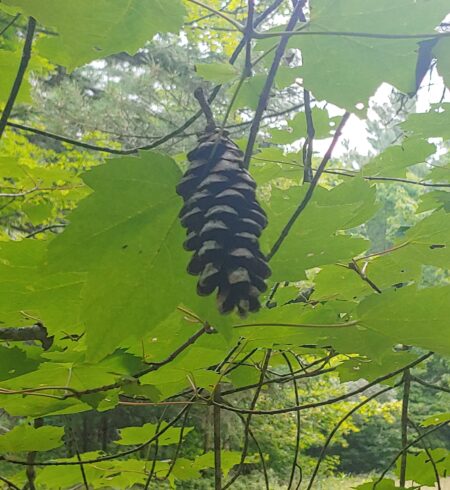Hear stories of hope and recovery from those with real experience. Or submit your own.
Kathy's Story

While I was an adjunct at Champlain College, I encountered an ever-growing number of students who, when they finally came to see me to explain an extended absence or a series of unexcused absences, would shame-facedly confess they were dealing with depression.
The third or fourth time I encountered this situation, I decided to share the outlines of my own mental health struggles as a young person. Learning that someone else had been there seemed to ease them, and they were, without exception, relieved when I said “I get that some days it’s hard to get out of bed. All I ask is that you send me an email, so I know what’s going on.” I would, in fact, receive emails if they needed to miss class, and they would also catch up on missed work, rather than falling further behind.
I share that story to illustrate how needed your current efforts are. Now, here’s my own story:
Back in the early 1970s, I lived in a very small Vermont town where there were very few kids my age. The local academy closed, and, unrelatedly, my best friend moved far away. I started at a new high school as the only girl going there from my town. At the school, I encountered closed groups of girls plus boys who called me names (I am a very tall woman), and by November I felt completely alone, isolated, and could not see anything ever getting better. One Sunday, the pain became too much, and I could only see one way out. What I needed to make it end was upstairs. I was dragging myself there when—for reasons I have never known and now never will—my father commanded me to get back down stairs.
“His voice alone kept me from killing myself. ”
How I was feeling came out, and my mother somehow found out about the Adolescent Clinic at what was then Mary Fletcher. Half a dozen times that winter and spring, my mother and I made the two-hour drive from our house to Burlington. Those sessions helped to the extent I was no longer fully suicidal, but I spent the rest of my high school years dipping into and finding a way out of depression that would often end with suicidal thoughts. Those cycles themselves were difficult, because there was always a sense of “why am I like this” and “why does this keep happening to me” and “what is wrong with me.” The cycles continued after I started college, until, one night, the thought came that I was still young, and maybe things would get better when I was out on my own as an adult, and I promised myself not to consider suicide again until I was 30. That idea was a gift, and it did stop the suicidal thoughts.
It didn’t stop depression from reappearing every so often, but when it did, I became good at recognizing when I needed counseling. I have a counselor now, and she is a great help as I navigate the wake of my father’s death and my mother’s extreme old age.
Mental health care for adolescents has much improved since the 1970s, but I worry that it is not as available in rural areas, where isolation can add to the stressors on young people, and where there is an emphasis on self-reliance that may prevent them from reaching out. If my story can offer hope to a young person, or encourage them to reach out for help, the teenager who is still in me feels her struggles were for something.
If there is anything else I can do to help spread the word about the importance of reaching out for help with mental health struggles, please let me know.
Thank you for providing this forum for sharing our stories. It means more than I can say.
 Dial 988
Dial 988
 text VT to 741741
text VT to 741741

